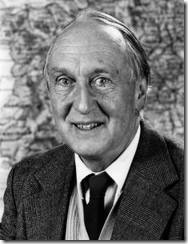An email from Tony Brown last evening brought a strange snipit of news which he is told is now in the public domain, although I haven’t come across it anywhere yet.
 Apparently, a contact of Tony’s at the Met Office has told him that the resignation of Chris Huhne has brought about a change in governance of that august British institution which incorporates an extraordinary irony. The Met Office’s new ‘owning minister’, who will report to Parliament on the organisation’s performance, governance and business plans, is the Liberal Democrat MP for North Norfolk, Norman Lamb who, though a solicitor by trade, has more than a passing connection with the controversial world of climate science.
Apparently, a contact of Tony’s at the Met Office has told him that the resignation of Chris Huhne has brought about a change in governance of that august British institution which incorporates an extraordinary irony. The Met Office’s new ‘owning minister’, who will report to Parliament on the organisation’s performance, governance and business plans, is the Liberal Democrat MP for North Norfolk, Norman Lamb who, though a solicitor by trade, has more than a passing connection with the controversial world of climate science.
One of the thorniest controversies that has been thrown up during the last decade and more of the climate debate is the precise nature of the so called Medieval Warm Period. This matters a great deal, because if global temperatures nearly a thousand years ago were similar to, or even higher than, those that we are enjoying today, then it becomes very much more difficult to make a compelling case for human emissions of carbon dioxide being the only possible explanation for global warming during the 20th century. Of course our forebears nearly a thousand years ago were not sufficiently industrialised to discharge Co2 into the atmosphere on a scale that could possibly influence the climate. If there were elevated temperatures in Medieval times, there must be some other influence on climate that we have not identified and are quite unable to explain. In which case the recent warming could not be considered to be anomalous.
This is a matter that has caused those who wish to promote the warmist cause some considerable disquiet. Indeed it led to a most injudicious email being sent by a leading climate scientist to someone who he assumed shared his enthusiasm for promoting the creed of climate alarmism. This suggested that the most pressing challenge facing supposedly like-minded persons at that time was to ‘get rid of the Medieval Warm Period’, and it’s not hard to see why he might think that way.
This email was written shortly before Professor Michael Mann launched his Hockey Stick graph on the world of science, and his intention seemed to be aimed at doing exactly what the renegade email suggested. Present warming is represented as being far in excess of anything that has occurred in the past thousand years. Not surprisingly, the IPCC strenuously promoted Mann’s findings, which relied entirely on an extremely questionable statistical construct based on data from tree rings. But where had the notion of the Medieval Warm Period come from in the first place, and what data had been used in research that produced findings so very different from those favoured by the IPCC?
 Well there are other ways of reconstructing past temperature than analysing tree rings. Historical records, archaeological research, zoological and botanical evidence of species migration, can all be very revealing of climate trends. Some might say far more so than tree rings which seem to be influenced by many factors other than temperature. The father of such research was a long time employee of the Met Office who eventually left to become the first head of the Climatic Research Unit at the University of East Anglia. His name was Hubert Lamb and he was the father of Norman Lamb, the Met Office’s new ‘owning minister’.
Well there are other ways of reconstructing past temperature than analysing tree rings. Historical records, archaeological research, zoological and botanical evidence of species migration, can all be very revealing of climate trends. Some might say far more so than tree rings which seem to be influenced by many factors other than temperature. The father of such research was a long time employee of the Met Office who eventually left to become the first head of the Climatic Research Unit at the University of East Anglia. His name was Hubert Lamb and he was the father of Norman Lamb, the Met Office’s new ‘owning minister’.
A quick glance at the MP for North Norfolk’s entry at the theyworkforyou.com website reveals that he has a very clear position on climate change, in fact he ‘voted very strongly for laws to stop climate change’. I very much hope that some alert journalist will ask Mr Lamb whether he thinks his old man knew what he was talking about.
(Those interested in the various reconstructions of temperature via Dr Michael Mann’s ‘Hockey stick’ and Hubert Lambs earlier work, will find the two compared in Tony Brown’s very detailed article The Long Slow Thaw published on Judith Curry’s blog, Climate Etc.)

The grandfather was also a high achiever
http://en.wikipedia.org/wiki/Horace_Lamb
Tonyb
One of the standard histories of climate is Emmanuel Le Roy Ladurie’s “Histoire du climat depuis l’an mil”, published in1967, and using much the same material as Hubert Lamb. In 2007 he published a short “dummy”s guide” (Abrégé d’histoire du climat du Moyen Âge à nos jours), and in the introduction he gives a polite and respectful nod to Michael Mann and Phil Jones. (The first questioning of the hockeystick by McIntyre and others dates from around 2004, I believe, but word clearly hadn’t got to France).
Le Roy Ladurie is in his eighties, and is hardly likely to wage a campaign to rectify the shocking rewriting of history provoked by the IPCC when it promoted the hockeystick to the status of revealed truth, and wiped Lamb from the history books. But it’s surprising that other voices haven’t been heard from academia protesting at the way the expertise of historians was simply overridden by “evidence” from treerings on mountaintops in the Rockies.
You don’t need to be a statistician to understand that the decision to trust tree rings over historical records (frost fairs, harvest dates, crop growing patterns etc) is not in itself a scientific one. (Similar disputes occur in archaeology and art history, when the radiocarbon dating disagrees with the opinion of experts, but the experts there are a fusty, feisty lot, and tend to stand their ground). Tony Brown’s research in Admiralty records reveals a similar situation with respect to Antarctic ice coverage. Computer enhanced images of satellite data are modern and fascinating; what some whaling captain wrote in his log two centuries ago is so yesterday.
The hockeystick controversy is a historical one. Lamb, lacking the masses of data and processing technology which blinds us nowadays, was a historian. The disagreement between Mann and Lamb should have been the subject of urgent debate involving historians and philosophers of history and of science. One more to add to the long list of climate debates that didn’t happen.
Geoff:
Just by-the-way:
I’ve posted a copy of Hubert Lambs entry in the Dictionary of National Biography here.
It’s worth reading right through, before checking out who wrote this, when you are likely to catch your breath. I suppose one could call it a masterpiece of diplomacy, or perhaps something else.
Interesting biography of a life full of practical hands on experience. I was interested to see Lamb’s work on fog and wondered if he met GS Callendar-(who compiled a seminal paper in 1938 on the Co2 theory)
Callendar had a very interesting war time in which one of his projects was to develop the means to clear fog from allied airfields in Britain during World war 2 as this wa proving extremely hazardous. This involved the burning millions of gallons of petrol in a coordinated fashion in order to eliminate the water droplets. It was apparently highly successful.
In reply to Geoff it would have been fascinating if an eminent historian could have sat in with Dr Mann as he researched his hockey strick material. I expect there would have been lots of arguments…
tonyb